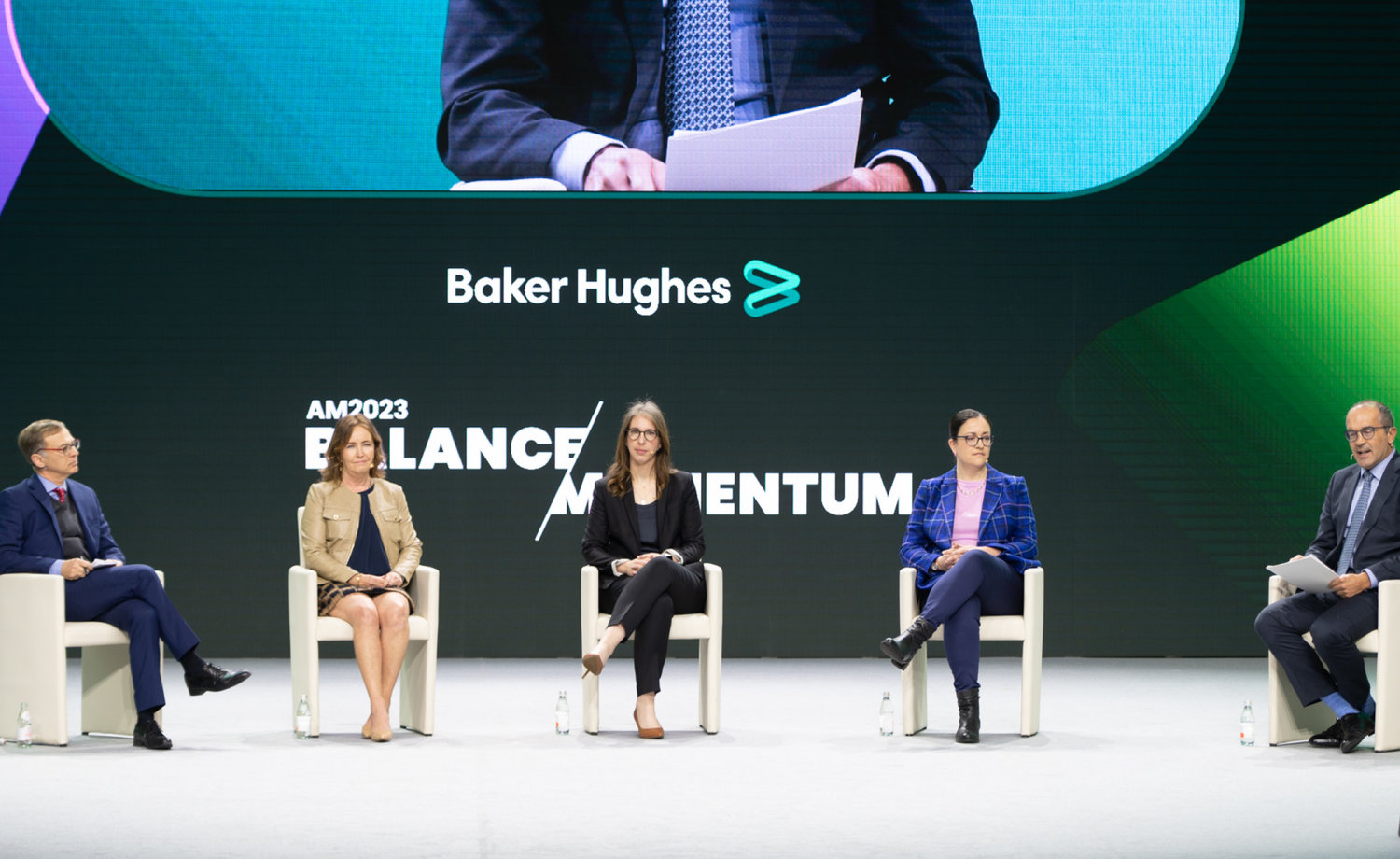New Energy Pinch Points
Featuring

If you want to talk about pinch points, talk about lithium-ion batteries - Jessica Roberts
Building on the previous day’s discussions of the energy mix and requirements for existing energy sources, the panel broadened the conversation to highlight some of the pinch points that might emerge in the new energy systems.
Jessica Roberts
Ms. Roberts said that new materials will be absolutely crucial. “For me, I think we need to talk about what’s the scale of, let’s say lithium-ion batteries as a platform technology for electric vehicles and stationary energy storage.” That market last year was about 700 GWh, and forecasts have it growing 700% in just 12 years, which will require massive scale-up of the entire supply chain, because the material is not available now. She says we need a lot more mining to happen, which is a huge pinch point because of the long lead time required. As a result, she expects auto makers may start taking more control of supply chains and even getting directly into raw materials.
Roberto Bocca
When it comes to geographical pinch points, Mr. Bocca thinks trade restriction will be the most challenging piece. “Eventually, technology will work out a solution. Capital will come if there is commercial reason. But trade barriers are much more difficult to overcome.” Despite individual countries’ growing need for energy security, he says the transition will not be easy and will require team spirit. “So, collaboration across the value chain has to be dramatically improved and increased, also collaboration among state and country.”
Collaboration across the value chains has to be dramatically improved
Kathleen Kelley
Adding to the discussion around minerals, Ms. Kelley said the current analysis assumes an exponential demand for minerals, especially those related to electric vehicles. “If you look at, whether it’s the lithium market or the nickel market which is even worse, you’re talking about going from 100,000 tons to 3 million tons, and that’s just not feasible. So, that gets you to a point where electric vehicles become part of the problem and not part of the solution.” Where investment is concerned, she said stringent ESG mandates are shrinking the pool of available minerals.
While a lot of mines are making progress with renewable fuels, their challenging geographies make it very difficult. Co-locating geothermal makes a lot of sense to her, but it still takes time. So, a lot of investors are allocating capital to oil and gas, but not to mining. “I think when firms are looking at investment in a space, they are probably not looking enough at recycling. I think that’s one of the things that has to be part of the solution going forward in order to meet the demand that we see just from the grid. People have to think about more conservation.”
When firms are looking at investment in a space, they are probably not looking enough at the recycling sector. People have to think about more conservation
Michal Meidan
Ms. Meidan said she’s concerned about some European worries that China could be the next Russia. But, with China’s dominant output of batteries, solar panels, wind turbines, etc., she said “we have to be careful about trying to constrain supplies of critical materials.” She feels it’s unfortunate that the world is becoming more protectionist rather than looking to scale up and share expenses, experience, and expertise.
“We have to remember that a lot of the energy transition today was made available by China scaling up existing technologies and making them more affordable globally.” She encouraged de-risking, but discouraged supply chains that exclude China. She likes the urgency seen in the industry now, and wants to see more discussion of renewables as a source of energy security.
But she thinks the danger with the securitization focus is that it could undo many of the globalization benefits that could help us solve the combined climate and energy challenge. Where investment is concerned, Ms. Meidan was also concerned with the impact of ESG, particularly how inconsistent governance and metrics are across the supply chain. “ESG reporting is very fragmented to put it nicely, and does pose challenges even in terms of understanding where companies need to be in order to benchmark themselves.” She said there needs to be leadership to make sure it is coordinated and consistent.
I don’t think we have time to recreate supply chains that exclude China right now





